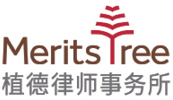Valuation adjustment mechanism (VAM) is a type of clause that is commonly used in PE/VC transactions, generally providing that if the company receiving the investment (the target company) fails to achieve certain business targets or a specific circumstance arises, the investor has the right to request the target company’s original shareholders to buy back this investor’s equity at a price calculated according to the specified pricing method or compensate this investor in a certain amount. The means by which the investor acquired the equity could be subscription of new equity or an acquisition of equity from the original shareholders. As the performance of a VAM is, for the original shareholders, a potential liability, individual shareholders frequently ask the captioned question out of concern for their family’s assets.

Partner
Merits & Tree Law Offices
A community debt means a debt that is incurred during a marriage by a spouse for the purposes of the couple’s life, the performance of statutory obligations and during the joint operation of a business. PRC Marriage Law recognizes the community property under which the property acquired by one of the spouses during the marriage becomes community property and, likewise, debt incurred in the name of one of the spouses during the couple’s marriage is deemed a community debt.
There are two criteria that determine whether a debt incurred during a marriage is a community debt:
- If one spouse agrees with the other one to incur the debt, such debt should be deemed a community debt regardless of whether the benefits derived from the debt are shared between the spouses; and
- Whether the spouses shared the benefits derived from the debt: even if the spouses did not agree to incur the debt beforehand or afterwards, if the spouses shared the benefits derived after such debt was incurred, such debt should likewise be deemed a community debt.
Based on the foregoing criteria, if both spouses executed the VAM, there is no doubt that such debt is a community debt. However, in practice, the more common situation is that only the husband or the wife executes a VAM as an original shareholder. The author would like to discuss the issue by dividing it into two different scenarios based on how the investor acquired the equity.
(1) VAM under the scenario of subscription of new equity. It is likely that the debt incurred by an original shareholder arising from a VAM under such a scenario is a community debt. Two main reasons: (i) The original shareholder takes the obligations under the VAM with an expectation that the target company will achieve the business targets, and if the business objectives are achieved (e.g., the target company successfully achieves a listing), the benefits will also inure to his or her spouse. From the perspective of the consistency of risks and benefits, the debt in question ought to be deemed a community debt; and (ii) in PE/VC practice in China, essentially all investors make their capital contributions with a premium, with the equity premium portion counting towards the target company’s capital reserve, thereby becoming interest of all the shareholders. Consequently, the value of the equity held by original shareholders increases; and if the benefits derived from the increase in value is community property, then the debt incurred to obtain such benefits, i.e., the debt under the VAM, should be deemed a community debt.
However, a different view holds that the increase in the equity value brought about by the target company’s achievement of the business targets is, for the spouse of the original shareholder, nothing more than anticipated benefits that have not been realized, and the exercise by the investor of its claim under the VAM precisely shows that the valuation of the target company’s equity is not as high as that when the investor made its capital contribution. So whether the value of the original shareholder’s equity will increase as a result of the capital increase is still uncertain. Accordingly, the debt under the VAM cannot be deemed as a community debt.
(2) VAM under the scenario of equity transfer. The determination of the captioned question is more complex under this model, because it is affected by the Interpretations of the Supreme People’s Court on Issues Relevant to the Application of the Law in Trials of Cases Involving Spousal Debt Disputes, which adjusts the allocation of the burden of proof regarding Community Debts under the Marriage Law Judicial Interpretations (2). The latter, in principle, presumes that a debt incurred during a marriage is a community debt, whereas the former, where the amount of a debt “exceeds the household’s needs for daily life”, allocates the burden of proof to the creditor, which increases the investor’s uncertainty and difficulty in recovering the debt under a VAM from the spouse of the original shareholder. That is because the investor is in no position to know whether the equity transfer monies that the original shareholder obtains for incurring the debt under the VAM is used for the life and operation of the household, and the adducing evidence therefore is even more difficult; and the criteria for determining whether the amount exceeds the household’s daily needs are also difficult to determine.
If the equity in the target company is pre-marriage property of the original shareholder, will the recovery by the investor against the spouse be precluded? The author tends to believe that, pursuant to the Interpretations of the Supreme People’s Court of Several Issues Concerning the Application of the PRC Marriage Law (3), “the returns derived on the personal property of the husband or wife after the marriage shall be deemed to be community property, with the exception of the fruits thereof and natural increases in the value thereof”. As the original shareholder of the target company often actually controls the target company and is responsible for operating the target company, the execution of a VAM itself should be deemed as joint operation of a business. Accordingly, as long as the original shareholder incurs the debt in order to obtain returns on his or her equity and as long as such debt incurring act occurs during the marriage, such debt is a community debt regardless of whether he or she actually receives benefits or only has the potential of deriving benefits.
Zhao Yiping is a partner at Merits & Tree Law Offices

Merits & Tree Law Offices
5/F, Raffles City Beijing Office Tower
No.1 Dongzhimen South Street
Dongcheng District, Beijing 100007, China
Tel: +86 10 5650 0900
Fax: +86 10 5650 0999
E-mail: yiping.zhao@meritsandtree.com
www.meritsandtree.com





















